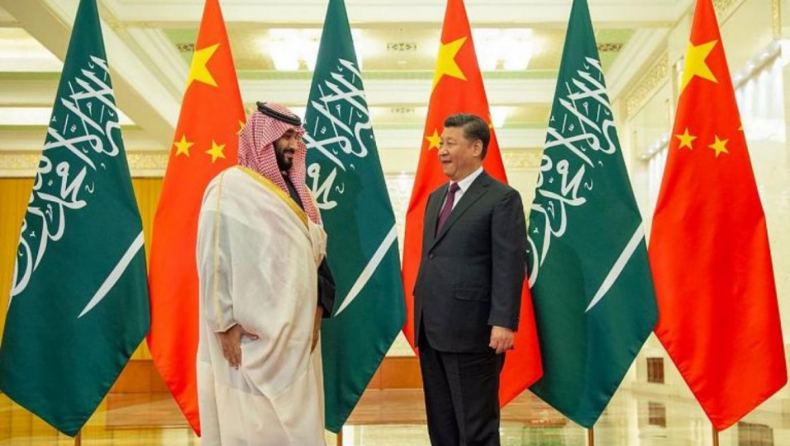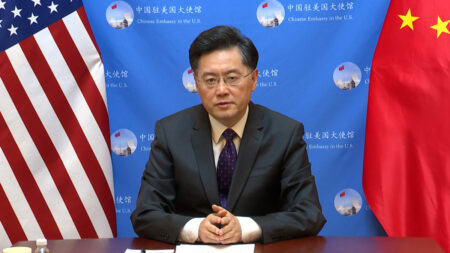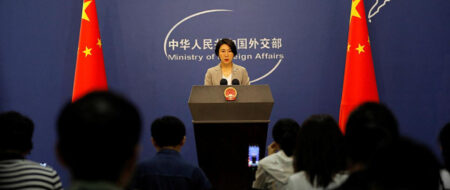The sanctions had an unintended effect, a churn among the middle powers. Do they stick with the Us or do they need to keep their options open and explore new ones?
Saudi Arabia for instance is circumspect. They’re snubbing the US and reaching out to Russia and now China. Reports say, Riyadh has invited Xi Jinping for a state visit and if it’s true this could change the politics of West Asia for starters Xi Jinping has not left China in two years.
Firstly, Xi Jinping has been shut away from the public and this would be quite a visit if Xi picks Riyadh to end that streak it’ll be symbolic.

Secondly, the timing of this invite especially when Washington and Riyadh are not on good terms with Riyadh’s straight refusal to Washington’s request/demand to increase oil production.
This tension has resulted Saudi Arabia to be in active talks with Beijing to price some of its oil sales to China in yuan. This move would prove to be a big dent in the US dollar’s dominance of the global petroleum market and will mark another shift by the world’s top crude exporter towards Asia.
The talks with China over yuan-priced oil contracts have been off and on for six years, but have accelerated this year as the Saudis have grown increasingly unhappy with decades-old U.S. security commitments to defend the kingdom.
Significance
Since last century, the US has been the biggest military power in West Asia.They intervened in Kuwait, they invaded Iraq, they contained the Iranian threat, they armed Israel and made Washington’s position in West Asia unchallenged.
But Xi Jinping has been slowly chipping away, his first target was Iran which needed relief from sanctions and China needed oil which led both sides to sign a 25-year economic agreement.
At the same time, Beijing reached out to Iran’s neighbor and funded economic projects, weapons and most importantly they offered something which the US couldn’t which is a market for their oil.
The US is energy independent now with their oil reserves increasing with each passing day but on the other hand, being the biggest energy consumer in the world China does need oil.
China buys more than 25% of the oil that Saudi Arabia exports and if priced in yuan, those sales would boost the standing of China’s currency.It would be a profound shift for Saudi Arabia to price even some of its roughly 6.2 million barrels per day of crude exports in anything other than dollars.
To this date, the majority of global oil sales around 80% are done in dollars and the Saudis have traded oil exclusively in the dollar since 1974 in a deal with the Nixon administration that included security guarantees for the kingdom.
The effort to strengthened Yuan
Beijing introduced yuan-priced oil contracts in 2018 as part of its efforts to make its currency tradable across the world but Beijing hasn’t been successful in denting the dollar’s dominance in the international oil market.
For China, using the dollar has become a hazard highlighted by US sanctions on Iran over its nuclear program and on Russia in response to the Ukrainian invasion.
China has stepped up in its courtship of the Saudi kingdom and in recent years, China has helped Saudi Arabia to build its ballistic missiles.This rethink by Riyadh is another setback for Joe Biden and he can only blame himself for this.
But why this shift especially in China?
The US economic relations with the Saudi’s are diminishing especially when the US is now the top oil producer in the entire world.
During the 1990s US used to import 2 million barrels of crude oil per day but today those numbers have fallen to less than 500,000 barrels a day.By contrast, China’s oil imports have swelled over the last three decades, in line with its expanding economy.
According to data from China’s General Administration of Customs, Riyadh was China’s top crude supplier in 2021, selling around 1.76 million barrels a day followed by Russia at 1.6 million barrels.
The US-Saudi relation
Relations between the US and Saudi Arabia have chilled during the Biden administration over the American policy in the Gulf region.
Issues include the revival of the Iran nuclear deal, end of US support for Saudi intervention in Yemen’s civil war, legal immunity for a crown prince who is facing lawsuits over the murder of Saudi journalist Jamal Khashoggi in its Istanbul consulate four years ago and US refusal to add Houthis to its list of terrorist groups.
During Biden’s election campaign he vowed to treat the kingdom as a parish state quoting “there is very little social redeeming value in present government of Saudi Arabia”
A senior US official called the idea of Saudis selling oil to China in yuan “highly volatile, aggressive also not very likely” also claiming Saudis floated the idea in the past whenever there was tension between Washington and Riyadh.
Conclusion
Switching millions of barrels of oil trades from dollars to yuan every day could rattle the Saudi economy which has its currency pegged to the dollar.Doing more sales in yuan would more closely connect Saudi Arabia to China’s currency, which hasn’t caught up much internationally due to Beijing’s tight control on it.
This is an untested relationship with questions yet to be answered such as How much military assistance can China provide, how much leverage will they bring over Iran but for now Saudi Arabia holds the cards.
Published By – Damandeep Singh
Edited By-Kritika Kashyap













